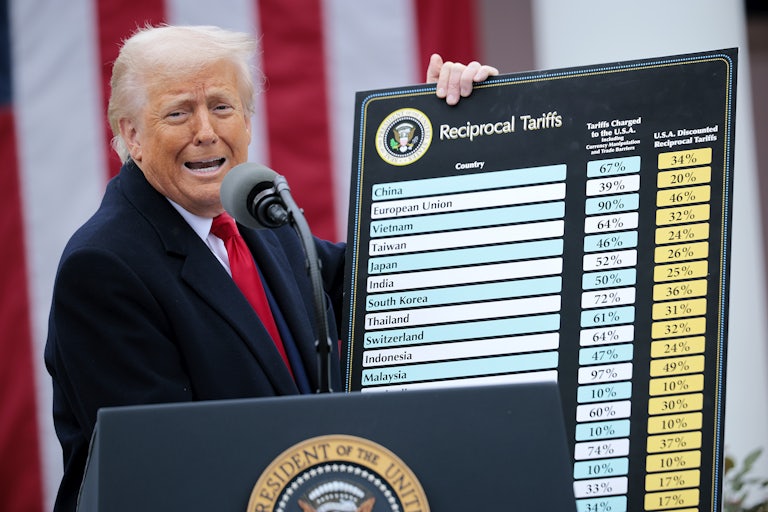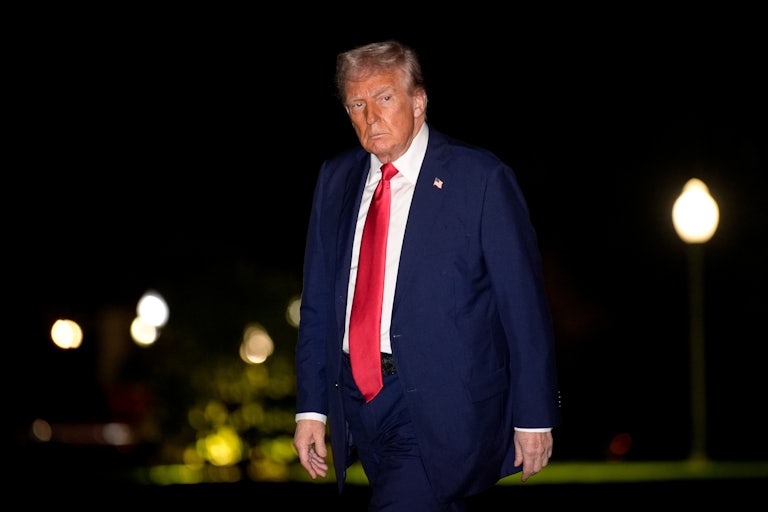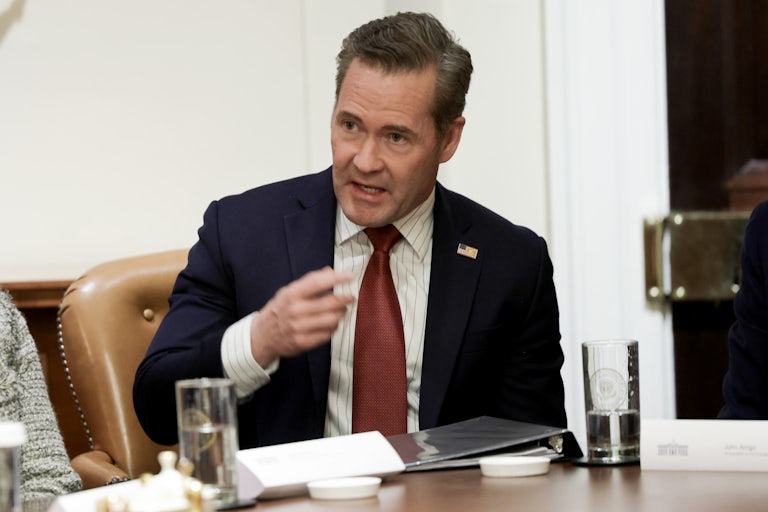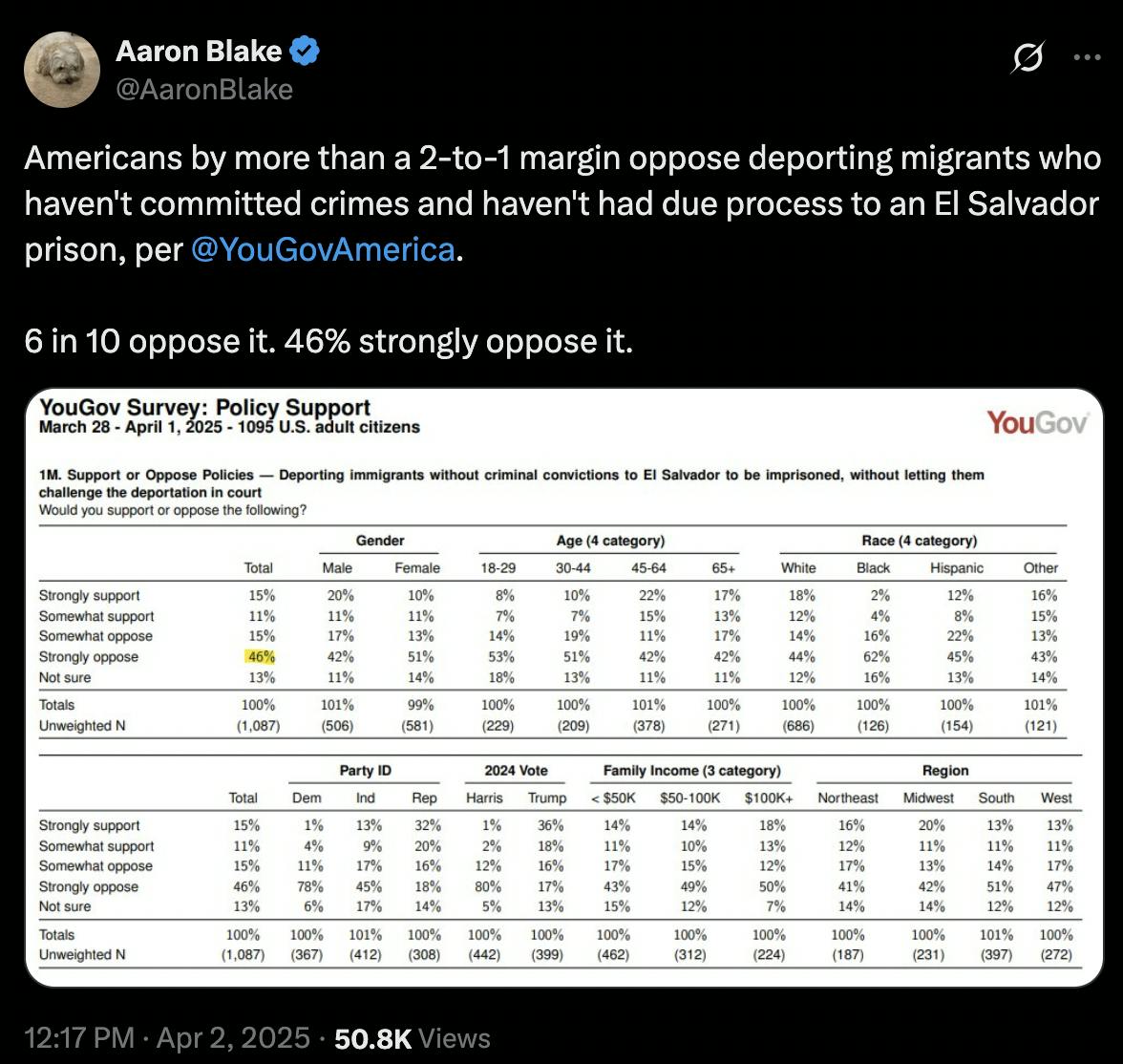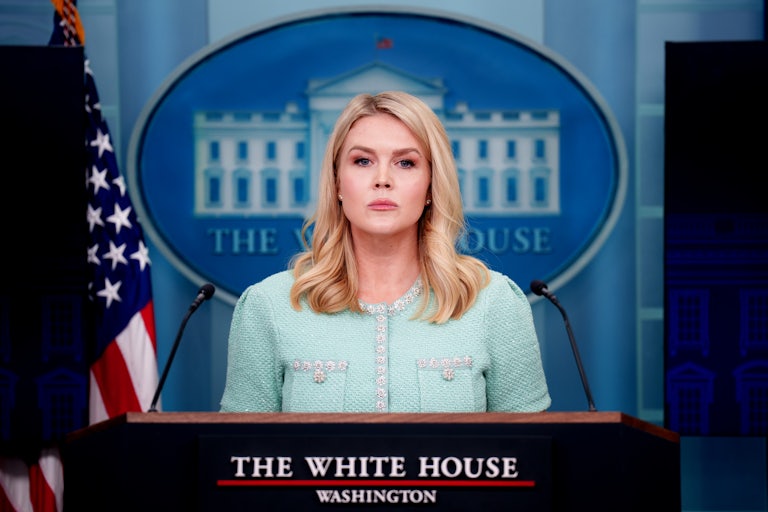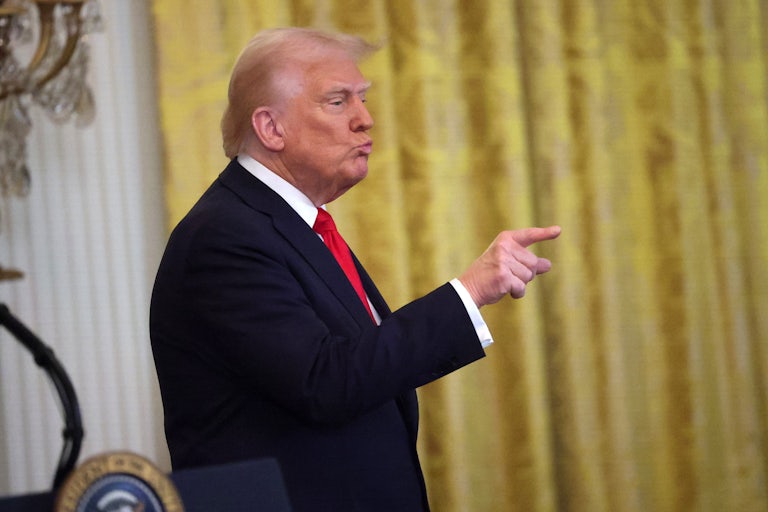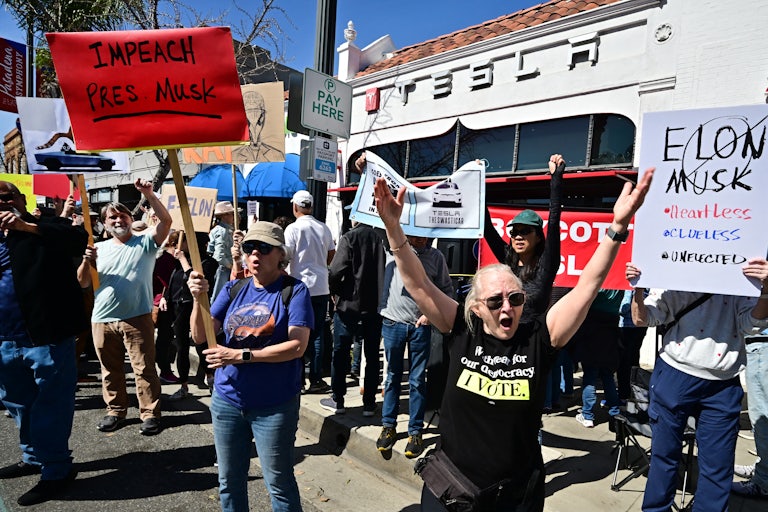Trump Says Tariffs Could Have Stopped the Great Depression
Donald Trump has found a bonkers new defense for his extreme tariffs.
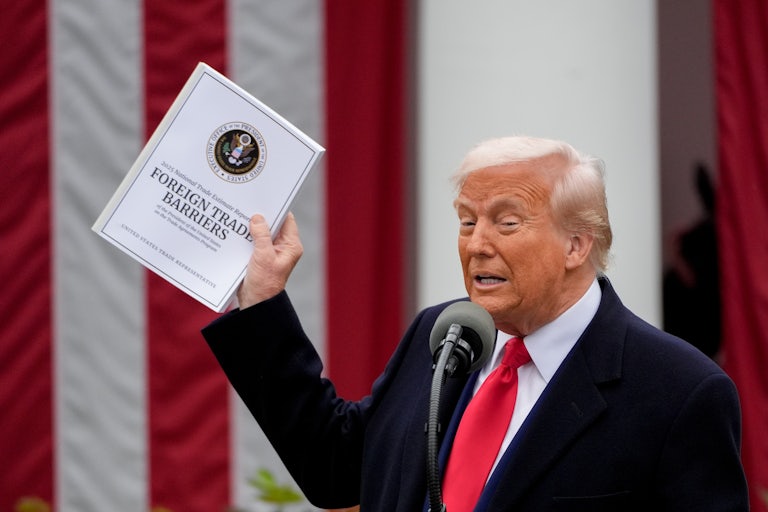
Donald Trump claimed Wednesday that the United States entered the Great Depression as a result of turning its back on the policy of placing tariffs on other countries in favor of an income tax.
During a winding speech to mark the so-called Liberation Day, Trump presented an alternative history where steep tariffs, like the ones he’d come to celebrate, could have prevented the worldwide economic disintegration of the early twentieth century.
“From 1789 to 1913 we were a tariff-backed nation, and the United States was proportionately the wealthiest it has ever been,” Trump said, adding that the U.S. was “collecting so much money, so fast, we didn’t know what to do with it!
“Then, in 1913 for reasons unknown to mankind, they established the income tax so citizens, rather than foreign countries, would start paying the money necessary to run our government,” he said.
“Then in 1928 it all came to a very abrupt end with the Great Depression, and it would have never happened if they had stayed with the tariff policy; it would have been a much different story,” Trump said. “They tried to bring back tariffs to save our country, but it was gone. It was gone. It was too late, nothing could have been done.”
Trump’s revisionist history is designed to promote his economic agenda—not reflect what actually happened. Not only could tariffs not have prevented the Great Depression, they made it even worse.
In 1913, as the result of struggling farmers and Democrats advocating to establish an income tax, Republicans put up an income tax amendment, hoping that it would be rejected—it wasn’t, and the Sixteenth Amendment became law.
At the same time, Congress passed the Underwood Simmons Tariff Act that lowered tariff rates from 40 percent to 27 percent, in a Democrat-backed effort to promote free trade. Crucially, tariffs were raised again in 1921, after Republican President Warren Harding entered the White House and began a reinvigorated era of protectionism.
In 1930, Congress passed the Smoot-Hawley Tariff Act, which raised tariffs in all sectors and is considered to have exacerbated the worldwide economic downturn that lasted from 1929 until 1939, by undermining international trade and affording little protection to domestic producers.
Smoot-Hawley was disastrous not only for the U.S. economy, tanking U.S. exports to Europe from $2,341 million in 1929 to just $784 million in 1932, but also for global trade, which declined by a whopping 66 percent between 1929 and 1934, according to the U.S. Office of the Historian. The effects of Smoot-Hawley were so awful that it marked the end of steep tariffs in American trade policy for the rest of the twentieth century.
Trump’s baseless insistence that lowered tariffs led to the Great Depression is representative of his entire economic policy, and just how untethered from reality it has become.
